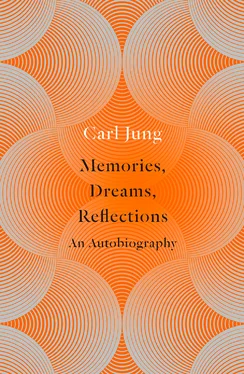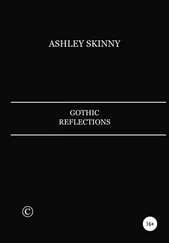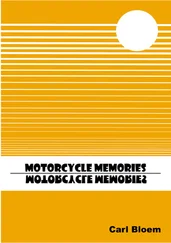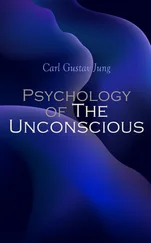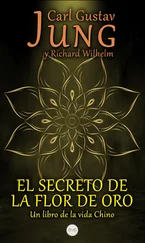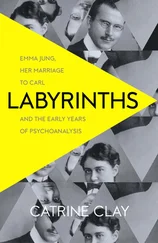Although Jung was active and affirmative in the making of the “autobiography,” for a long time his attitude towards the prospect of its publication remained — quite understandably — highly critical and negative. He rather dreaded the reaction of the public, for one thing because of the candour with which he had revealed his religious experiences and ideas, and for another because the hostility aroused by his book, Answer to Job , was still too close, and the incomprehension or misunderstanding of the world in general was too painful. “I have guarded this material all my life, and have never wanted it exposed to the world; for if it is assailed, I shall be affected even more than in the case of my other books. I do not know whether I shall be so far removed from this world that the arrows of criticism will no longer reach me and that I shall be able to bear the adverse reactions. I have suffered enough from incomprehension and from the isolation one falls into when one says things that people do not understand. If the Job book met with so much misunderstanding, my ‘memoirs’ will have an even more unfortunate fate. The ‘autobiography’ is my life, viewed in the light of the knowledge I have gained from my scientific endeavours. Both are one, and therefore this book makes great demands on people who do not know or cannot understand my scientific ideas. My life has been in a sense the quintessence of what I have written, not the other way around. The way I am and the way I write are a unity. All my ideas and all my endeavours are myself. Thus, the ‘autobiography’ is merely the dot on the i.”
During the years in which the book was taking shape a process of transformation and objectivisation was also taking place in Jung. With each successive chapter he moved, as it were, farther away from himself, until at last he was able to see himself as well as the significance of his life and work from a distance. “If I ask the value of my life, I can only measure myself against the centuries and then I must say, Yes, it means something. Measured by the ideas of today, it means nothing.” The impersonality, the feeling of historical continuity expressed in these words, emerges ever more strongly in the course of the book, as the reader will see.
The chapter entitled “The Work,” with its brief survey of the genesis of Jung’s most important writings, is fragmentary. How could this be otherwise, when his collected works comprise nearly twenty volumes? Moreover, Jung never felt any disposition to offer a summary of his ideas — either in conversation or in writing. When he was asked to do so, he replied in his characteristic, rather drastic fashion, “That sort of thing lies entirely outside my range. I see no sense in publishing a condensation of papers in which I went to so much trouble to discuss the subject in detail. I should have to omit all my evidence and rely on a type of categorical statement which would not make my results any easier to understand. The characteristic ruminant activity of ungulate animals, which consists in the regurgitation of what has already been chewed over, is anything but stimulating to my appetite …”
The reader should therefore regard this chapter as a retrospective sketch written in response to a special occasion, and not expect it to be comprehensive.
The short glossary which I have included at the end of the book, at the publisher’s request, will, I hope, be of help to the reader who is not familiar with Jung’s work and terminology. I have taken a small number of the definitions from the “ Wörterbuch der Psychologie und ihrer Grenzgebiete ,” with the kind permission of its editor, Kurt von Sury, M.D. Wherever possible I have elucidated the concepts of Jungian psychology by quotations from Jung’s works, and have supplemented the dictionary’s definitions in the same way. These quotations must, however, be regarded as no more than suggestive hints. Jung was constantly defining his concepts in new and different ways, for an ultimate definition, he felt, was not possible. He thought it wise to let the inexplicable elements that always clung to psychic realities remain as riddles or mysteries.
A great many persons have helped me with this inspiring and difficult task, have shown unfailing interest during the slow growth of the book, and have furthered its progress by stimulating suggestions and criticism. To all of them I offer heartfelt thanks. Here I shall mention by name only Helen and Kurt Wolff, of Locarno, who conceived the idea of the book and helped to bring that idea to fruition; Marianne and Walther Niehus-Jung, of Küsnacht-Zürich, who throughout the years in which it was taking shape aided me by word and deed; and R. F. C. Hull, of Palma de Mallorca, who gave me advice and help with unflagging patience.
December 1961
ANIELA JAFFÉ
My life is a story of the self-realisation of the unconscious. Everything in the unconscious seeks outward manifestation, and the personality too desires to evolve out of its unconscious conditions and to experience itself as a whole. I cannot employ the language of science to trace this process of growth in myself, for I cannot experience myself as a scientific problem.
What we are to our inward vision, and what man appears to be sub specie aeternitatis , can only be expressed by way of myth. Myth is more individual and expresses life more precisely than does science. Science works with concepts of averages which are far too general to do justice to the subjective variety of an individual life.
Thus it is that I have now undertaken, in my eighty-third year, to tell my personal myth. I can only make direct statements, only “tell stories.” Whether or not the stories are “true” is not the problem. The only question is whether what I tell is my fable, my truth.
An autobiography is so difficult to write because we possess no standards, no objective foundation, from which to judge ourselves. There are really no proper bases for comparison. I know that in many things I am not like others, but I do not know what I really am like. Man cannot compare himself with any other creature; he is not a monkey, not a cow, not a tree. I am a man. But what is it to be that? Like every other being, I am a splinter of the infinite deity, but I cannot contrast myself with any animal, any plant or any stone. Only a mythical being has a range greater than man’s. How then can a man form any definite opinions about himself?
We are a psychic process which we do not control, or only partly direct. Consequently, we cannot have any final judgment about ourselves or our lives. If we had, we would know everything — but at most that is only a pretence. At bottom we never know how it has all come about. The story of life begins somewhere, at some particular point we happen to remember; and even then it was already highly complex. We do not know how life is going to turn out. Therefore the story has no beginning, and the end can only be vaguely hinted at.
The life of man is a dubious experiment. It is a tremendous phenomenon only in numerical terms. Individually, it is so fleeting, so insufficient, that it is literally a miracle that anything can exist and develop at all. I was impressed by that fact long ago, as a young medical student, and it seemed to me miraculous that I should not have been prematurely annihilated.
Life has always seemed to me like a plant that lives on its rhizome. Its true life is invisible, hidden in the rhizome. The part that appears above ground lasts only a single summer. Then it withers away — an ephemeral apparition. When we think of the unending growth and decay of life and civilisations, we cannot escape the impression of absolute nullity. Yet I have never lost a sense of something that lives and endures beneath the eternal flux. What we see is blossom, which passes. The rhizome remains.
Читать дальше
